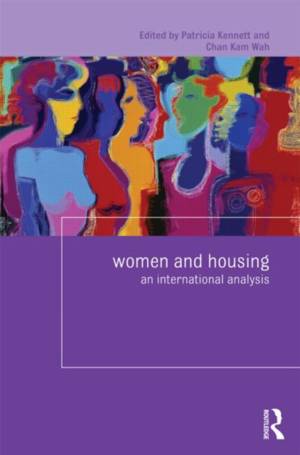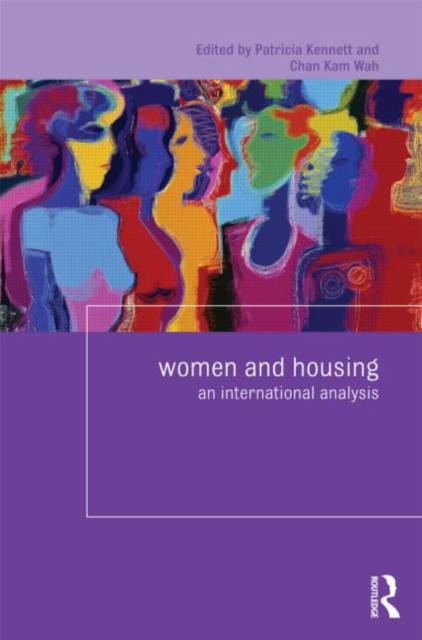
- Afhalen na 1 uur in een winkel met voorraad
- Gratis thuislevering in België vanaf € 30
- Ruim aanbod met 7 miljoen producten
- Afhalen na 1 uur in een winkel met voorraad
- Gratis thuislevering in België vanaf € 30
- Ruim aanbod met 7 miljoen producten
Omschrijving
In the context of contemporary economic, political, social and cultural transformations, this book brings together contributions from developed and emerging societies in Europe, the USA and East Asia in order to highlight the nature, extent and impact of these changes on the housing opportunities of women.
The collection seeks to contribute to comparative housing debates by highlighting the gendered nature of housing processes, locating these processes within wider structured and institutionalized relations of power, and to show how these socially constructed relationships are culturally contingent, and manifest and transform over time and space.
The international contributors draw on a wide range of empirical evidence relating to labour market participation, wealth distribution, family formation and education to demonstrate the complexity and gendered nature of the interlocking arenas of production, reproduction and consumption and the implications for the housing opportunities of women in different social contexts. Worldwide examples are drawn from Australia, China, Great Britain, Hong Kong, Japan, Spain, Sweden, Taiwan and the USA.
Specificaties
Betrokkenen
- Uitgeverij:
Inhoud
- Aantal bladzijden:
- 248
- Taal:
- Engels
- Reeks:
Eigenschappen
- Productcode (EAN):
- 9780415548977
- Verschijningsdatum:
- 1/12/2010
- Uitvoering:
- Paperback
- Formaat:
- Trade paperback (VS)
- Afmetingen:
- 150 mm x 226 mm
- Gewicht:
- 249 g

Alleen bij Standaard Boekhandel
Beoordelingen
We publiceren alleen reviews die voldoen aan de voorwaarden voor reviews. Bekijk onze voorwaarden voor reviews.










